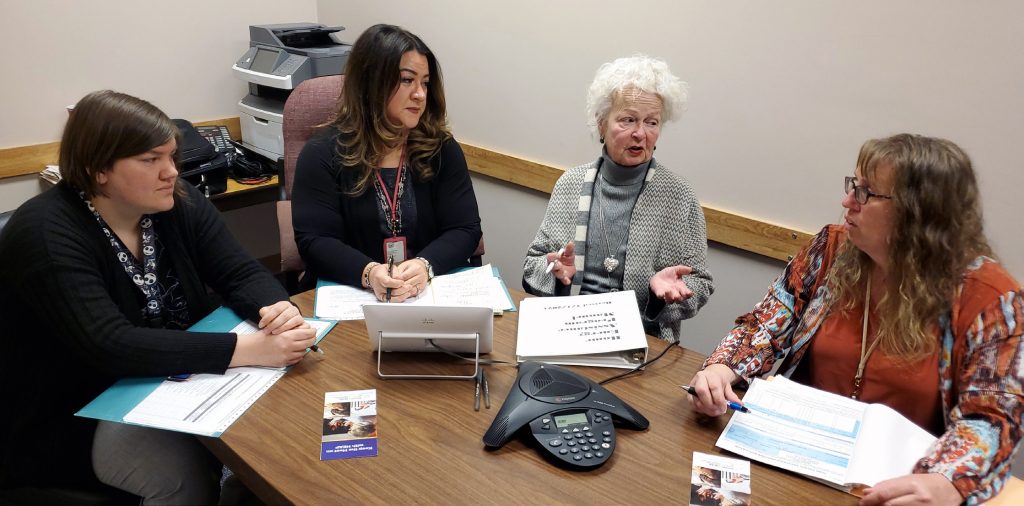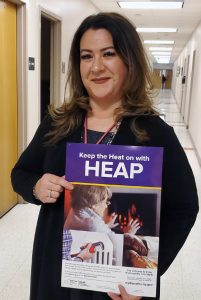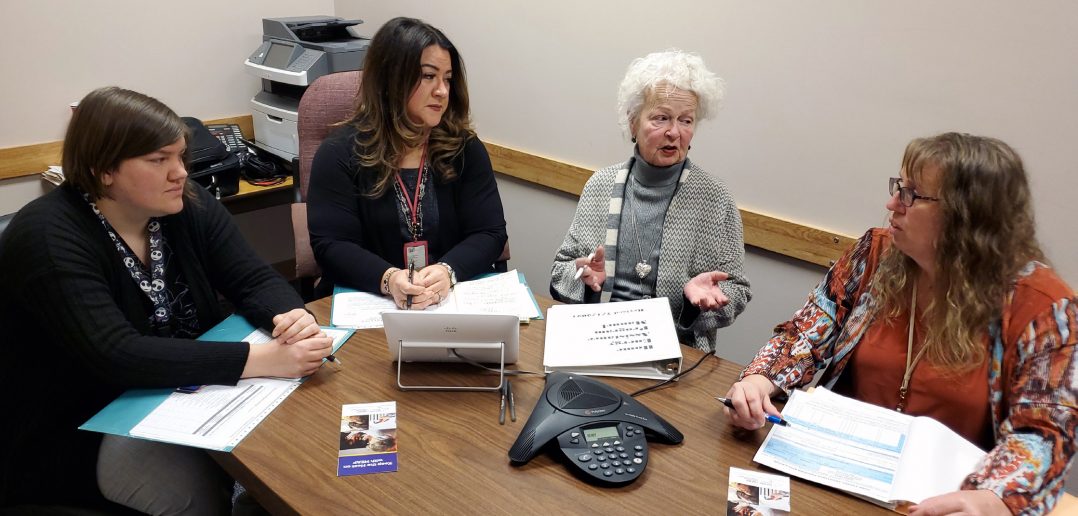
Ulster County Department of Social Services workers, from left to right, Social Welfare Examiner Trainee Marriah Jennings, Senior Social Welfare Examiner Jennifer Rios, Social Welfare Examiner Lisa Smith and Social Welfare Examiner Linda DeGroat discuss the start of the Emergency HEAP application process.
KINGSTON — When fall heads toward winter and temperatures drop, the chill many New Yorkers feel most acutely comes from the dread of higher utility bills.
Rising utility bills have increasingly affected working-class people in recent years, something compounded this year by higher food prices. Thankfully, there is a state program that helps residents so they don’t have to decide between keeping the heat on or food on the table.
The state-funded Home Energy Assistance Program (HEAP), which is administered locally by counties, helps with both heating and cooling costs as well as repairing and replacing in-home heating systems and air conditioners.

Jennifer Rios, senior social welfare examiner, oversees HEAP applications in Ulster County.
“Since we opened for applications in the fall, we’ve been getting a lot of new people applying who have not used the program before,” said CSEA member Jennifer Rios, a senior social welfare examiner at Ulster County who supervises the HEAP application process. “The fuel prices have definitely impacted people.”
In addition to increased energy costs creating hardships for many people, Ulster County residents are also grappling with the impact of a change in a local utility company’s billing system. Many county households have experienced wildly varying bills from month to month as the company only reads meters bimonthly, using estimates for alternate months when meters aren’t checked.
Due to those hurdles, the assistance available through HEAP is more important than ever, and the CSEA members processing applications take their duties seriously.
“It makes you feel good to be able to help people because you definitely don’t want anyone without heat,” said Rios. “It’s an awful thing to lose your electricity or heat in your home. You have to have a lot of compassion for people.”
While winter is by far the busiest season, Rios and her co-workers stay busy year round. HEAP recipients may also qualify for services such as a once-yearly furnace cleaning (for energy efficiency), heating equipment repair and replacement and removal of furnaces or fuel tanks deemed unsafe or leaking.
After the initial HEAP application process concludes, a second round offering emergency HEAP assistance opens each January.
The program covers more than home heating. In May, applications begin to be accepted for a cooling program that provides residents with certain qualifications with an air conditioner.
HEAP services are promoted by utility companies and counties advertise it in many ways. Promoting awareness of the program is key, Rios said.
“People are encouraged to apply for HEAP even if they’re not certain if they qualify,” said Rios.
— Jessica Ladlee



